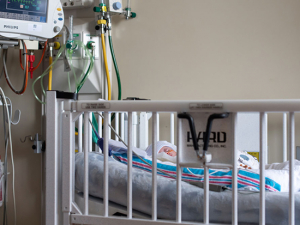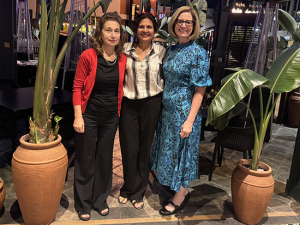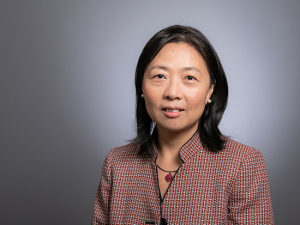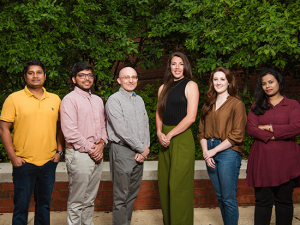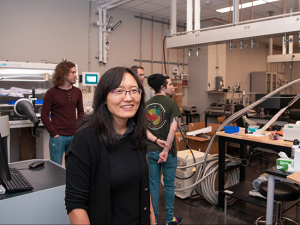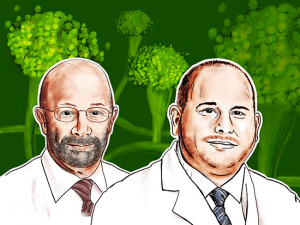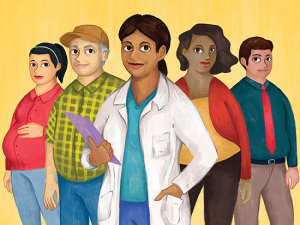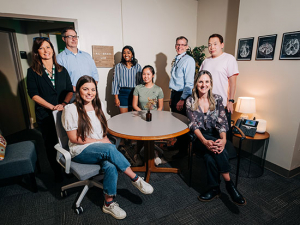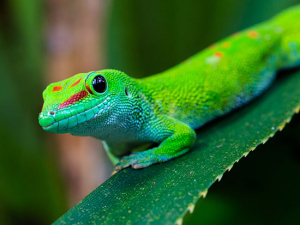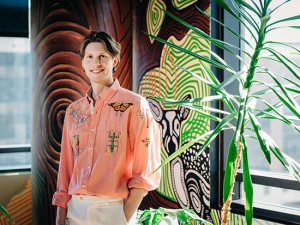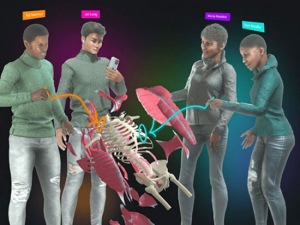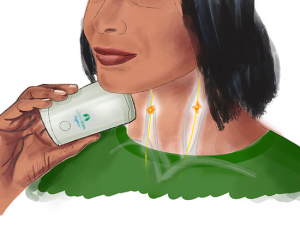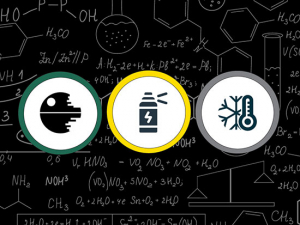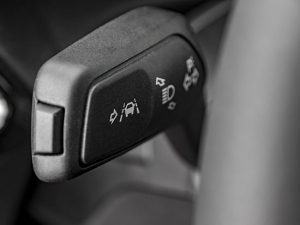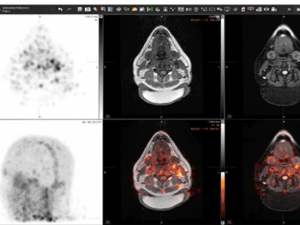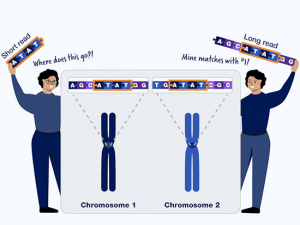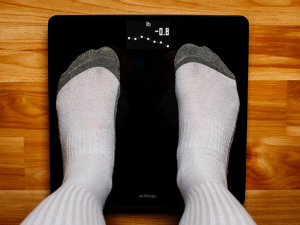UAB is hosting free screenings of the documentary “Picture a Scientist” March 8-10, with a post-screening panel discussion 1 p.m. March 12. (Find dates, times and links here, and watch a trailer for the film here.)
“Picture a Scientist” tells the stories “of researchers who are writing a new chapter for women scientists,” including a molecular biologist working with zebrafish, a chemist developing new types of sensors and a geologist whose work includes studies of climate change and Antarctica.
Inspiring women in science are breaking new ground across UAB’s campus, including women working with research interests similar to those featured in this highly praised film.
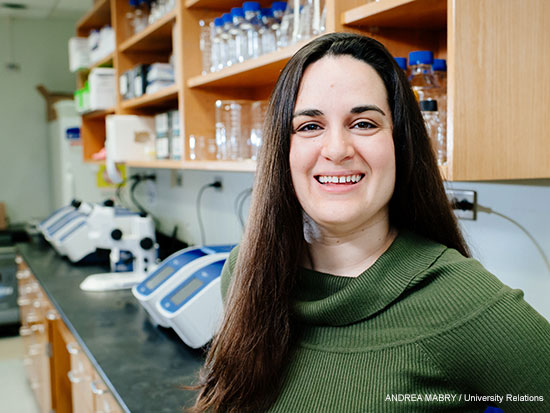 Summer Thyme, Ph.D.
Summer Thyme, Ph.D.
Assistant Professor
Department of Neurobiology
In 2020, Thyme earned two highly competitive awards (from the Mallinckrodt Foundation and the Klingenstein-Simons Fellowship in Neuroscience) to fund her study of brain development in zebrafish, inch-long relatives of the minnow that share more than 70% of their genes with humans. Thyme develops models of neurodevelopmental disorders in zebrafish and is developing screening approaches to identify new therapies.
The Reporter profiled Thyme, her work and the unique equipment she has developed to expand zebrafish studies, in DIY neuroscience tools help Thyme break new ground in schizophrenia research.
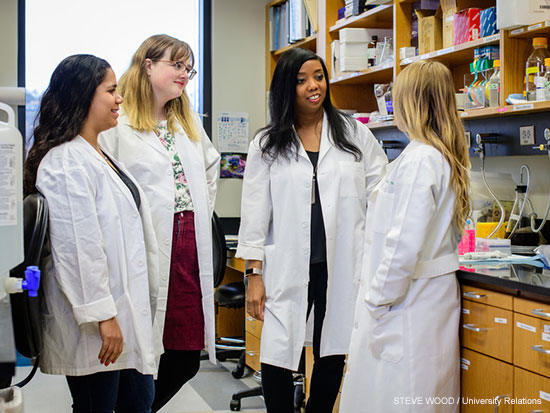 Farah Lubin (second from right) with graduate students and lab members Silvienne Sint Jago, Rebecca Hauser and Megan Rich-Hu in 2019.Farah Lubin, Ph.D.
Farah Lubin (second from right) with graduate students and lab members Silvienne Sint Jago, Rebecca Hauser and Megan Rich-Hu in 2019.Farah Lubin, Ph.D.
Associate Professor
Department of Neurobiology
Just down the hall from Thyme’s lab is the workspace of another pioneer. Lubin’s Neuro-epigenetics and Memory Laboratory studies the genetic mechanisms behind memory formation in the healthy brain and is one of the prime movers of a field, neuro-epigenetics, that barely existed 10 or 15 years ago. Lubin is also director of the National Institute of Neurological Disorders and Stroke’s Neuroscience Roadmap Scholar Program at UAB and is co-chair of the School of Medicine Black/African-American Faculty Association — work that earned her inclusion in a list of “1,000 Inspiring Black Scientists” this winter.
The Reporter followed Lubin’s route into science, and determination to help lift underrepresented scientists, in ‘I was tired of being the only’: words and deeds that can save science careers.
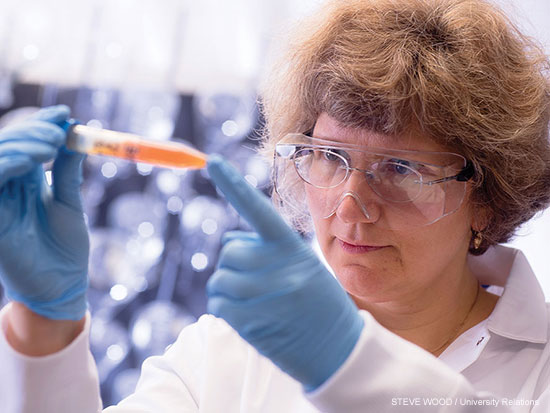 Eugenia Kharlampieva, Ph.D.
Eugenia Kharlampieva, Ph.D.
Professor
Department of Chemistry
Kharlampieva is part of a UAB team that recently demonstrated a promising therapy for Type 1 diabetes: transplanted pancreatic islet cells from cadavers, protected by a coating of biopolymers. Kharlampieva’s lab specializes in creating novel, “intelligent” micro-capsules that can do everything from transporting drugs to soaking up oil spills.
UAB Magazine explored Kharlampieva’s work in The shape of things to come: Tiny transforming capsules could make treatments smarter.
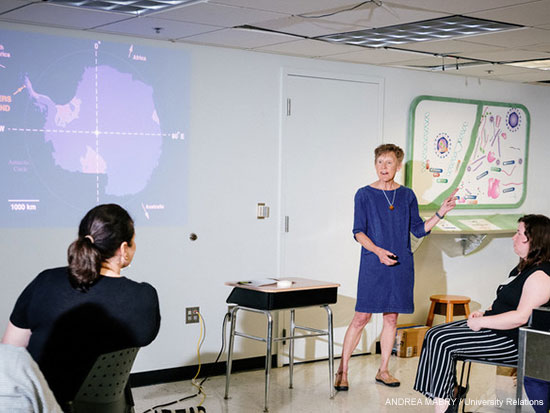 Maggie Amsler (standing) teaching at the Camp Antarctica Training Camp at the McWane Center in 2019.
Maggie Amsler (standing) teaching at the Camp Antarctica Training Camp at the McWane Center in 2019.
Maggie Amsler
Researcher V
Department of Biology
Amsler is a benthic ecologist and longtime member of UAB’s Antarctic research team, who has visited the frozen continent nearly 30 times in 35 years. In 2020, Amsler was selected as a member of The Explorers Club’s inaugural Explorers 50 program, which recognizes remarkable people working to change the world and extend the meaning and impact of exploration. That is a description that certainly fits Amsler, who was among the first scientists to explore Antarctica’s chilling waters in a submersible and has contributed to crucial studies on the effects of climate change-induced ocean acidification on calcifying organisms.
The Reporter explored Antarctica’s fragile beauty through Amsler’s eyes in Amsler is passionate about a place where penguins outnumber people.